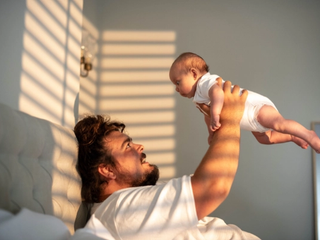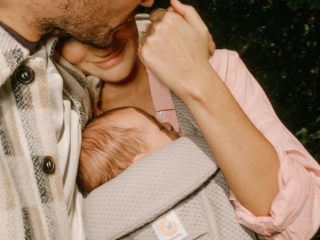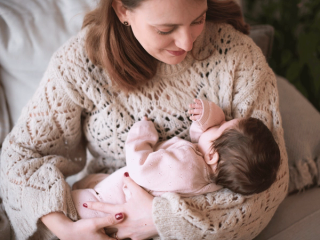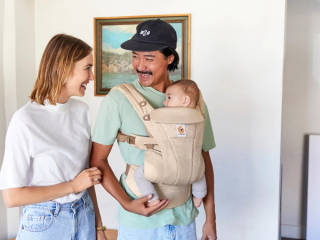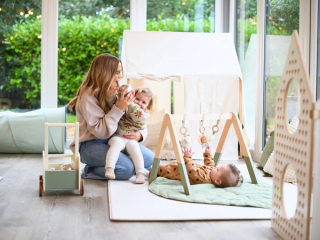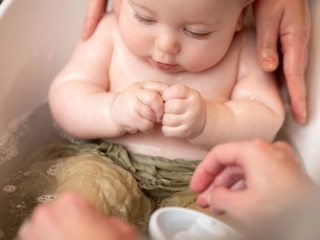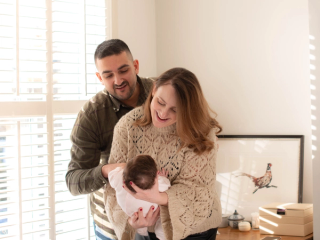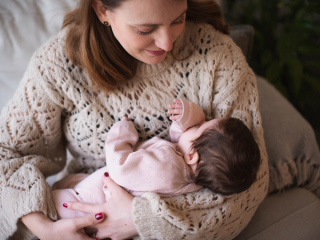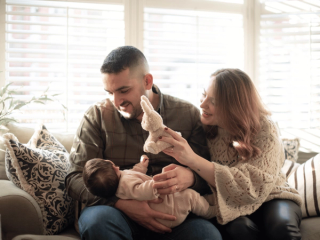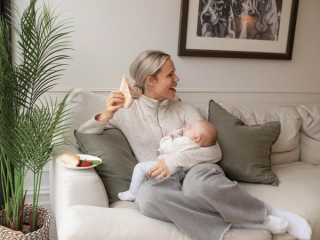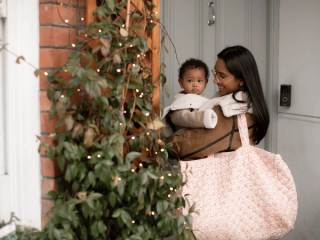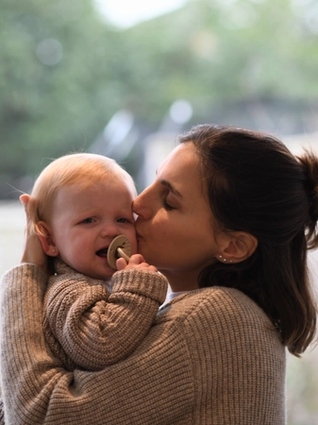
- Home
- Advice Hub
- Newborn
- New Parent Support
- How Do I Know Something Is Wrong With My Newborn
How do I know something is wrong with my newborn?
Babies can't tell us when something is wrong. How do you know if that fussiness or fever requires a call or trip to the hospital? Learn more with HiPP Organic.
As a new parent, it can be hard to know exactly what your baby needs - especially when they can’t tell you what’s wrong. Is it just a bit of fussiness, or could it be something more serious?
In this article, we’ll cover some common signs and symptoms that may suggest your baby is unwell and when to seek medical advice. The aim is to help you feel more confident in recognising when something might not be right.
Remember - you know your baby best. If something feels off, trust your instincts and don’t hesitate to get help. And be kind to yourself, babies can become unwell even when you're doing everything right. If you're ever unsure, it’s always better to check in with a healthcare professional.
Recognising when your baby might be unwell
If your baby is showing any of the following symptoms, they may be feeling unwell and it’s a good idea to speak to your GP or call NHS 111 for advice.
Changes in your baby’s behaviour or routine can sometimes signal that something isn’t quite right. This can include sudden change in appetite, refusing feeds or taking in less milk than usual. Vomiting, unusual fatigue, and inconsolable crying or irritability may also indicate that your baby is unwell.
Other symptoms to watch for include a widespread rash that occurs along with a temperature, which can be a sign of infection. Jaundice (yellowing of the skin or eyes) especially beyond the first two weeks of life. If your baby seems uncomfortable when passing stool, is constipated, or has poo that’s unusually pale, black, or bloody, it’s worth seeking medical advice.
Similarly, changes in urine, like blood in the urine, discomfort, or fewer wet nappies than usual, may point to a problem. While these symptoms don’t always mean it’s something serious, it’s important to get them checked.
When to seek immediate medical attention
If you think your infant is experiencing a medical emergency, it is important to act quickly and seek professional help without delay. You can access emergency care by calling 999 for an ambulance or taking your child to the nearest A&E department. Symptoms that can indicate serious illness include:
- Breathing difficulties – fast, noisy, or laboured breathing; grunting; sucking in under the ribs
- High temperature – 38°C or higher in babies under 3 months
- Extreme drowsiness or floppiness – very sleepy, hard to wake, or unresponsive
- Unusual skin colour – blue, very pale, or mottled, especially around lips or fingertips
- Signs of dehydration – sunken fontanelle, sunken eyes, fewer wet nappies, drowsiness
- Non-blanching rash – purple, red, or spotty rash that doesn’t fade when pressed; this could be a sign of sepsis (the rash may be harder to see on brown or black skin; check palms and soles)
- Seizures or loss of consciousness
For a full list of symptoms and guidance, visit the NHS website: Is your baby or toddler seriously ill?
Who to contact if your baby is unwell
GP - Your GP can assess your child and offer advice and support, is able to prescribe medication, and can refer you to other services both urgent and non-urgent if necessary. If you're worried about anything, make an appointment to see them.
Health Visitor - Your first point of contact for advice on your baby’s general health, development, and wellbeing.
NHS 111 - Available 24/7 for advice when you're unsure what to do.
999 – Call immediately in an emergency or if your baby shows serious symptoms.
Common illnesses in babies and children
It’s normal for babies and young children to catch common illnesses, especially as their immune systems are still developing. Some common illnesses include colds, ear infections, and stomach bugs.
Colds
Colds are very common in childhood and often cause a runny or blocked nose, sneezing, a mild cough, and sometimes a slight fever. Colds usually get better on their own within 7-10 days. You can help your baby feel more comfortable with rest, fluids, saline nose drops can help to relieve a blocked nose and if needed, infant paracetamol (always follow age-appropriate guidance and speak to a pharmacist or GP if unsure).
Ear infections
Ear infections are also common in babies and toddlers. Signs may include ear pulling, irritability, fever, trouble sleeping or fluid coming from the ear. Many ear infections clear up on their own within a few days, but if your baby is in a lot of pain, has a high fever, or pus is leaking from the ear, see your GP for advice.
Stomach bugs (gastroenteritis)
Stomach bugs can cause vomiting, diarrhoea, and sometimes a fever. These are often caused by a virus. The main concern is dehydration, so it's important to offer small amounts of fluid regularly (breast milk, formula, or oral rehydration solutions if advised). Contact your doctor if your baby is under 6 months, is showing
Prevention and care tips for parents
Keeping your baby healthy starts with simple daily habits. Here are some key tips to help prevent illness and promote your baby’s wellbeing:
- Practice good hand hygiene - Always wash your hands before handling your baby, especially after being around someone who’s unwell or after contact with animals.
- Keep your baby’s environment clean and safe - Regularly clean surfaces and toys, and ensure your home is baby-proofed to prevent accidents.
- Check your baby daily - Look over their skin, particularly around the nappy area and around the mouth, check for any spots that seem red, irritated, or unusual. Don’t forget to check their general behaviour too.
- Support healthy routines - Make sure your baby is getting enough sleep, feeding regularly, and is alert during their awake times.
- Trust your instincts - If something doesn’t seem right, contact your health visitor or GP. It’s always better to ask than to worry.
Final Thoughts. When in doubt, trust your instincts. You know your baby better than anyone. If something doesn’t feel right, always seek help. You’re not overreacting, and you're never wasting anyone’s time.
